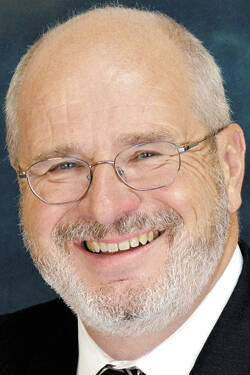
John Krull
Kurt Vonnegut and I came close to dying together.
It was when I first met him. He had come home to Indianapolis to speak at a dinner. I was his host for a couple of days.
I didn’t know him well before that. I’d had lunch with him in New York to discuss his speech, but that meal had been about the business at hand.
When he came back home, though, we had some downtime. He asked me to drive him around to his old Indianapolis haunts. We visited the homes where he lived as a boy and glided by the high school he attended. He regaled with tales of his boyhood.
Once, when we were driving down Meridian Street, Indianapolis’ main north-south thoroughfare, a pickup truck barreled through a red light and would have crumpled my little compact car if I hadn’t spotted it and slammed on the brakes.
As we were collecting ourselves, Kurt said, “Almost came home to get killed.”
“Yeah,” I responded, “and the truly sad thing is that the fact that I died, too, wouldn’t have been mentioned anywhere in the first 15 paragraphs of the story about the accident.”
We looked at each other. Then we both started to laugh.
And laughed.
And laughed some more.
We had been cordial with each other up until then. But that may have been the moment we became friends — or “pals” as he called it.
From that time forward, we talked on the phone with some regularity. When work took me to New York, he and I would get together for lunch or dinner. The wine would flow, and we’d tell jokes, swap stories and laugh for a couple of hours.
Of course, I’d read Kurt’s books before I got to know him, but that had been in high school and college. Back then, I’d been struck and drawn in by his tone, by the fact that he made wry, subversive jokes about even the most serious subjects. That voice of his had and has been attracting younger readers for decades.
But knowing him, I began to revisit his work. As a more mature reader, I had greater appreciation for the wisdom and the craft that marked his writing — how he made even difficult things look easy.
That said, we rarely discussed his books. Instead, we talked about current events. We talked about life. And about Indiana.
He told me he’d never stopped thinking of himself as an Indianapolis boy. His memories of the city and the state where he grew up ran through him like the blood in his veins.
We also laughed.
A lot.
He told great jokes. The punchlines snapped. His timing was superb.
He had a wonderful way of setting them up. I’d know something devastating was coming when he stretched out the single syllable of my first name.
“Jawwwwnh,” he’d say before he set about busting my gut.
People often asked what drew us together. For a long time, I didn’t have an easy answer. On the surface, we didn’t have much in common. He was older than my father, and I was younger than all but one of his children. That meant we didn’t have the same experiences.
Somehow, that didn’t matter. When we got together, time passed easily. We relaxed around each other.
Some of what drew us together may have been that we both liked to laugh. We had similar sensibilities regarding life’s absurdities, the absolutely bonkers ways we human beings often treat each other.
We both learned young that sometimes laughing was the only way to keep from crying.
Nov. 11 marked the 100th anniversary of Kurt Vonnegut’s birth. It is a significant moment, one that will prompt much discussion regarding his books and his place in the literary canon.
That’s appropriate.
Kurt was an important American writer — likely the most important of his time.
But I’ll mark the occasion in other ways.
I’ll think of a guy who guffawed when a pickup truck almost clocked us in Indianapolis.
I’ll remember a great man who was also a good guy, one who liked to sip wine and just pass the time with a pal.
I’ll recall one of Kurt’s jokes, and I’ll laugh.
A little wryly maybe because he’s gone. But I’ll laugh, nonetheless.
Because he was my pal and he sure knew how to tell a joke.
John Krull is director of Franklin College’s Pulliam School of Journalism and publisher of TheStatehouseFile.com, a news website powered by Franklin College journalism students, where this commentary originally appeared. The opinions expressed by the author do not reflect the views of Franklin College. Send comments to [email protected].
